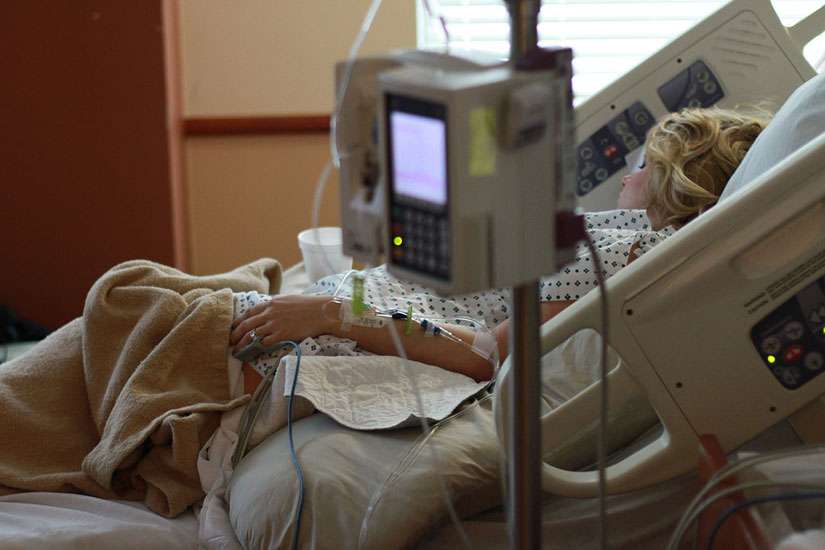In 2005, Dad was diagnosed with cancer again. This time doctors were not recommending surgery and were less confident the cancer could be controlled. After a while, doctors were able to give my father a rough estimate of when he would likely die.
Now, it is true that every living thing is also dying. With each passing day, we grow closer to our inevitable end. But most of us don’t live with the acute sense of mortality that comes with being given a defined period of time to live. This brings dying into a new sense of reality, and those dying share this with their families and loved ones. Life with a scientifically established expiry date becomes not only about living well but also dying well.
Over four years Dad tried many treatments — from standard to experimental, homeopathy to home remedies. During his illness there were moments of hopeful expectation. Maybe the growth of the cancer could be arrested or delayed? Then there were times when the reality of his illness and its inevitable outcome weighed heavily. Our family’s focus was placed on his medical health and treatment. There were regular medical appointments, radiation and chemotherapy.
Gradually my father lost the ability to swallow. He was put on a G-tube, a gastric feeding tube inserted through an incision in the abdomen directly into the stomach. It was a tiring and stressful period, for him and my mother who was his primary caregiver.
Dying also meant new ways of living. My father continued to do things he enjoyed, but in modified ways. He would happily play bridge wearing a mask and, accompanied by a feeding machine, write out his bids. He continued to travel, something he did not really enjoy but knew my mother did. For trips he would pack medication and medical supplies along with clothes and toiletries. My father also continued to participate in the Church. When unable to attend Mass, he would participate through the daily TV Mass.
My father’s dying is not unique, but it certainly made us aware of the reality of being ill in society today. Dad was fortunate to have a wife who cared for him plus a daughter and son-in-law who were present with their growing family. Living in the same city, I was also able to be there. He had help over and above what was provided by CCAC (the Community Care Access Centre). He was graced by the visits of an exceptional chaplain from St. Elizabeth’s Healthcare. He was able to afford experimental drugs not covered by his public or private health care plans. This abundance of resources and support was unlike the experience of many others we met along Dad’s journey — people who were alone and vulnerable. He was fortunate to be able to die well.
Dying well is an art, one which we are all called to practice.
In 1415 an anonymous Dominican friar published the Tractatus artis bene moriendi, “Treatise on the Art of Dying Well.” This treatise gave rise to an entire body of literature dedicated to ars moriendi or the art of dying. It was a pre-modern handbook on the process of dying well.
The anonymous Dominican handbook is part of a rich literary and artistic tradition which emerged out of Europe’s profound and extended experience of death at the end of the Middle Ages: the Black Death (1346-53) and the 100 Years’ War (1337-1453).
The ars moriendi helped people make sense of their individual and collective experiences of dying — particularly in situations of violence and illness. It plumbed the human and spiritual depths of dying, clearly naming key moments in what is inevitably a confusing and mysterious event.
The original treatise was practical and spiritual. It began by noting the preparation for dying well is living well. It goes on to name temptations we often face as death approaches: lack of faith, despair, impatience, vanity and greed. At the same time it commends contrasting virtues: faith, hope, patience, humility and generosity. It invites the dying to commit to Christ in imitation of His passion and death. It offers practical rules for the behaviour of caregivers and families. The last section contains appropriate prayers for the dying. Dying is an indispensable moment on the way to the life of the Resurrection. We can’t help thinking about the rich complexity of modern dying in view of impending euthanasia legislation.
Our culture has a tendency to medicalize and sterilize dying, even trying to reverse dying in the cult of health and youth. We have lost the art of dying well. Any art requires imagination, but when it comes to our own deaths we too often surrender our imaginations to the medical and clinical dimensions of the experience. The medicine is important, even indispensable, but it doesn’t complete the picture.
Imagination resists our tendency to sterilize or reduce rich, complex and mysterious realities. In truth, dying is frightening because it’s beyond our control and knowledge. But that’s not the sum of dying. By encompassing what we don’t know and can’t control, imagination helps us make sense of things — even as we wade through an ocean of stress and seeming meaninglessness. Imagination allows us to think differently and respond differently.
If I had access to a contemporary ars moriendi, would I have been able to more easily recognize the deeper dimensions of my father’s death? Wonderful resources for the spiritual care of the dying do exist in rituals and prayers, in chaplains and health-care workers, in communities of support. However, the time has come to rally these resources and create our own modern culture of the ars moriendi, so we all can count on dying well.
(Dias is superior of the Dominican Friars of Toronto and teaches in the Faculty of Theology, University of St Michael’s College.)

